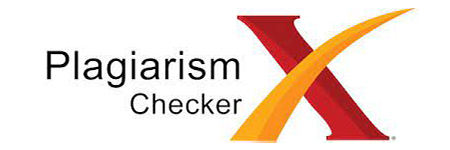Pengaruh Model Pembelajaran Arias dengan Problem Based Learning Terhadap Motivasi dan Hasil Belajar IPA Siswa Kelas IV SDN Bakan Kabupaten Lombok Tengah
DOI:
https://doi.org/10.70716/seed.v1i1.43Keywords:
Learning motivation, Learning achievement, Problem Based Learning, ARIASAbstract
This study aims to determine the differences in learning motivation and science learning achievement between students who follow the ARIAS learning model with Problem Based Learning and conventional learning. A total of 58 fourth grade students at SDN Bakan were selected as samples . The study used experiment research design with the non-equivalent post-test only control group design. The data of motivation learning collected by questioner and learning achievement collected by objective test. Validity test of questioner and test analyzed by used Product Moment and Point Biserial. The reliability test of questioner and the test used by Alpha Cronbach and KR-20. The hypothesis test used ANAVA and MANOVA. The result showed us that : first, there was a significant difference between the students that treated with ARIAS learning model with Setting Group Investigation than those who treated with conventional learning model (F=10,373 and Sig.=0,020; p<0,05).
Downloads
References
Abordo, I. & Gaikwad, S. 2005. Group Investigation: How Does It Work. International Forum (InFo). 8 (1 & 2), 79 -98.
Darma, I K. 2007. Pengaruh model pembelajaran konstruktivisme terhadap Hasil B elajar matematika terapan pada mahasiswa Politeknik Negeri Bali ditinjau dari motivasi berprestasi. Jurnal Teknodik. 22(6). 108-129.
Depdiknas. 2003. Undang-undang nomor 20 tahun 2003 tentang sistem pendidikan nasional. Jakarta
Erwik dkk. (2014). Implementasi Model Pembelajaran ARIAS untuk Meningkatkan Hasil Belajar IPA pada Siswa Vi pada semester 1 Sekolah Dasar Negeri 3 Patas Kecamatan Gerokgak Tahun Pelajaran 2013/2014. Jurnal Mimbar PGSD Universitas Pendidikan Ganesha Jurusan PGSD (Vol: 2 No: 1 Tahun 2014). [Online] tersedia: http://download.portalgaruda.org/article [5/9/2016]
Fajaroh. F., & Dasna, I W. 2007. Model pembelajaran ARIAS. Hasil penelitian. http://gurupkn.wordpress.com. Diakses tanggal 3 Maret 2013.
Fatimah, F. (2012). Kemampuan Komunikasi Matematis dan Pemecahan Masalah Melalui Problem Based Learning. Jurnal Penelitian dan Evaluasi Pendidikan [Online], Vol 16 (1), 11 Halaman. http://journal.uny.ac.id/index.php/jpep/article/download/1116/1168
Mergendoller, Maxwell, & Bellissimo. 2006. ”The Effectiveness of Problem -Based Intruction: A Comparative Study of Intructional Methods and Student Characteristics”. Interdisciplinary Journal of Problem-based Learning, 1 (2): 49-69
Nasuton, Parimpunan. 2008. “Penerapan Model Pembelajaran Berdasarkan Masalah (Problem based instruction) dalam Pembelajaran Matematika di SMU”. Dinamika, vol. 1, no. 1, 29- 44.
Kagan, Jerome. (1965). Impulsive and Reflektive Children Significance o f Conceptual Tempo. Dalam Krumboltz, J.D (Edt) Learning and the Educational Process. Chicago, Mc Nally and Company.
Sudia, Muhammad. (2013). Profil Metakognisi Siswa yang Bergaya Kognitif Impulsif -Reflektif dalam Memecahkan Masalah Terbuka Materi Geometri Bangun Datar ditinjau dari Perbedaan Gender. (Disertasi) tidak dipublikasikan, PPS -Unesa, Surabaya
Downloads
Published
How to Cite
Issue
Section
License
Copyright (c) 2024 Laili Rahmatin

This work is licensed under a Creative Commons Attribution-ShareAlike 4.0 International License.











